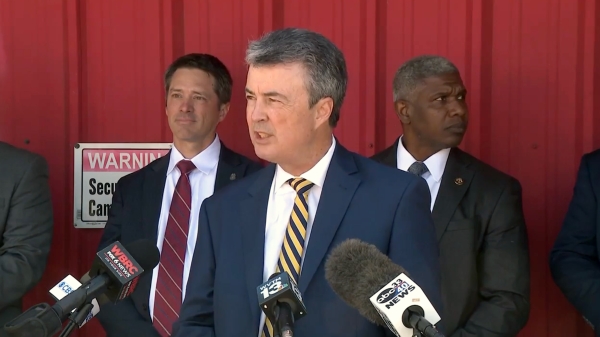The state argued in a new brief filed in federal court that the state’s minimum wage law — which prevents cities from raising their minimum wages — is not racially motivated but is instead an ordinary piece of economic legislation aimed at maintaining a uniform wage floor across the state.
Attorney General Steve Marshall filed the brief last week in the 11th Circuit Court of Appeals as part of ongoing litigation over the law passed in 2016 after Birmingham attempted to raise its minimum wage to $10 an hour.
The state’s minimum wage is currently at the federal minimum of $7.25, and a number of cities in other states have raised their minimum wages higher than the minimum set in those states. New York City and Seattle have minimum wages higher than $15 an hour.
Lawmakers passed the Alabama Uniform Minimum Wage and Right-to-Work Act quickly after Birmingham voted to raise its minimum wage. The law required a uniform minimum wage across the state — at the federal minimum.
The Alabama NAACP, Greater Birmingham Ministries, the Alabama Legislative Black Caucus and others sued state officials, saying the law purposely discriminated against Birmingham’s black citizens by denying them economic opportunities on account of their race and that the Legislature’s actions violated the political process and Birmingham residents’ voting rights by transferring control from the majority-black Birmingham City Council to the majority-white Alabama Legislature.
The plaintiffs argued the law is an example of Alabama’s majority-white Legislature exerting too much authority over a majority-black city.
A lower federal district court had dismissed the suit before the three-judge panel of the 11th Circuit reversed that decision, holding that plaintiffs’ racial discrimination claims could move forward. It shot down aspects of the lawsuit that dealt with voting rights and political process claims.
But that’s when the full court stepped in again and agreed to rehear the decision to allow the case to move forward.
Marshall’s brief argues that the plaintiffs have failed to establish their claims of intentional racial discrimination.
Many legislators and businesses argued that the state law was needed to promote economic stability and job growth, and there was no evidence that anyone acted for racist reasons, Marshall argued in his brief. The state argues that the argument is over economics and not racism.
The attorney general, defending the state against the lawsuit, argued that more is needed to back up the charges of racism.
Appeals court to reconsider decision in Birmingham minimum wage lawsuit
Lawyers for the state went a step further, arguing the case should be dismissed because the plaintiffs sued the wrong defendants. Marshall said the plaintiffs allege that they have been harmed because their employers are not paying what they are entitled to under the Birmingham ordinance.
That dispute, Marshall said, should be litigated between employees and employers, not between employees and the attorney general.
A number of states — Texas, Arkansas, Georgia, Indiana, Louisiana and Missouri — have filed briefs in support of the state. Business interest groups have also backed the state including the Alabama Retail Association, the Business Council of Alabama, the Alabama Grocers Association and others.
The federal minimum wage was last raised to $7.25 a decade ago, and it hasn’t been adjusted since. Twenty-nine states and the District of Columbia has state minimum wages higher than the federal minimum.
The full court will decide later this year whether to dismiss the case or allow it to move forward. They’ll reconsider the same issues the three-judge panel decided on — whether there is a plausible case that state lawmakers discriminated intentionally based on the race of Birmingham’s residents.
Plaintiffs have until May 15 to file reply briefs. The 11th Circuit will hear oral arguments in the case the week of June 24, 2019.



















































